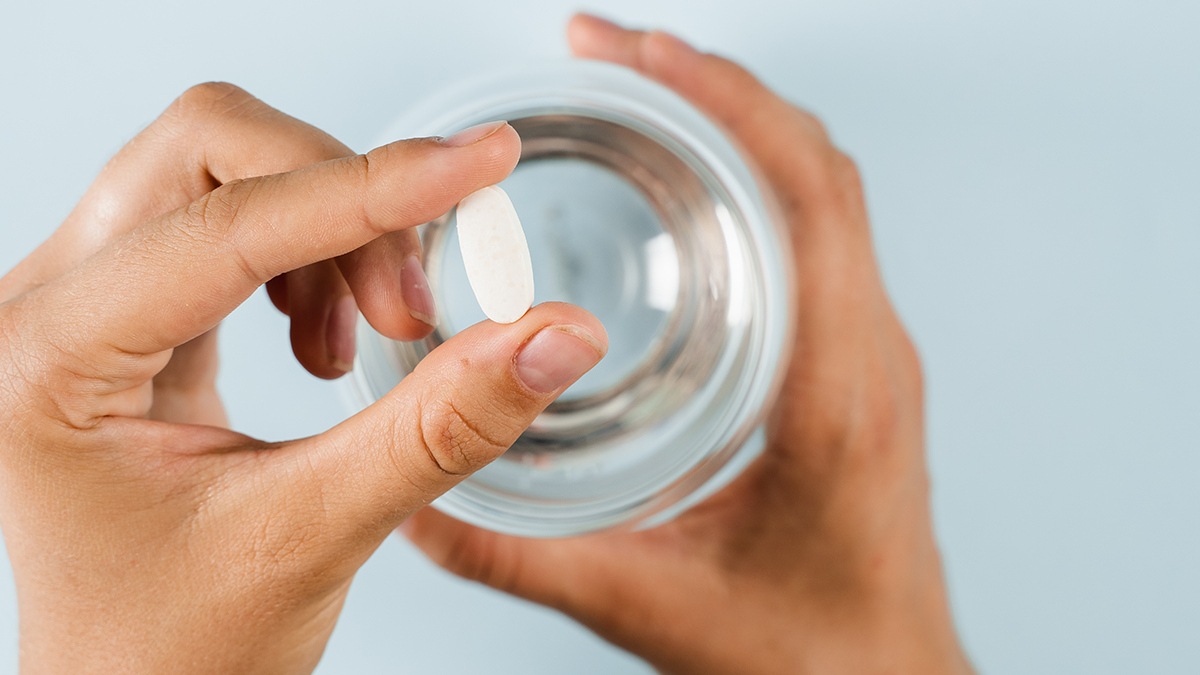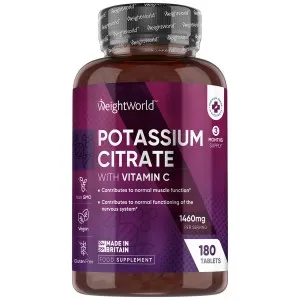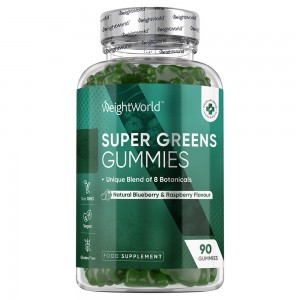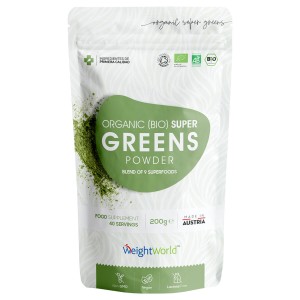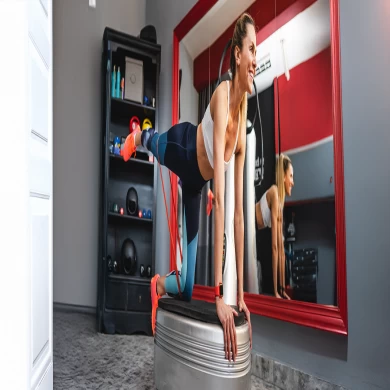All-Natural Supplements
GMP-certified and GMO-Free
Free UK Delivery
Enjoy free shipping on orders above £35
100% Customer Satisfaction
We offer a full 90-day money back guarantee
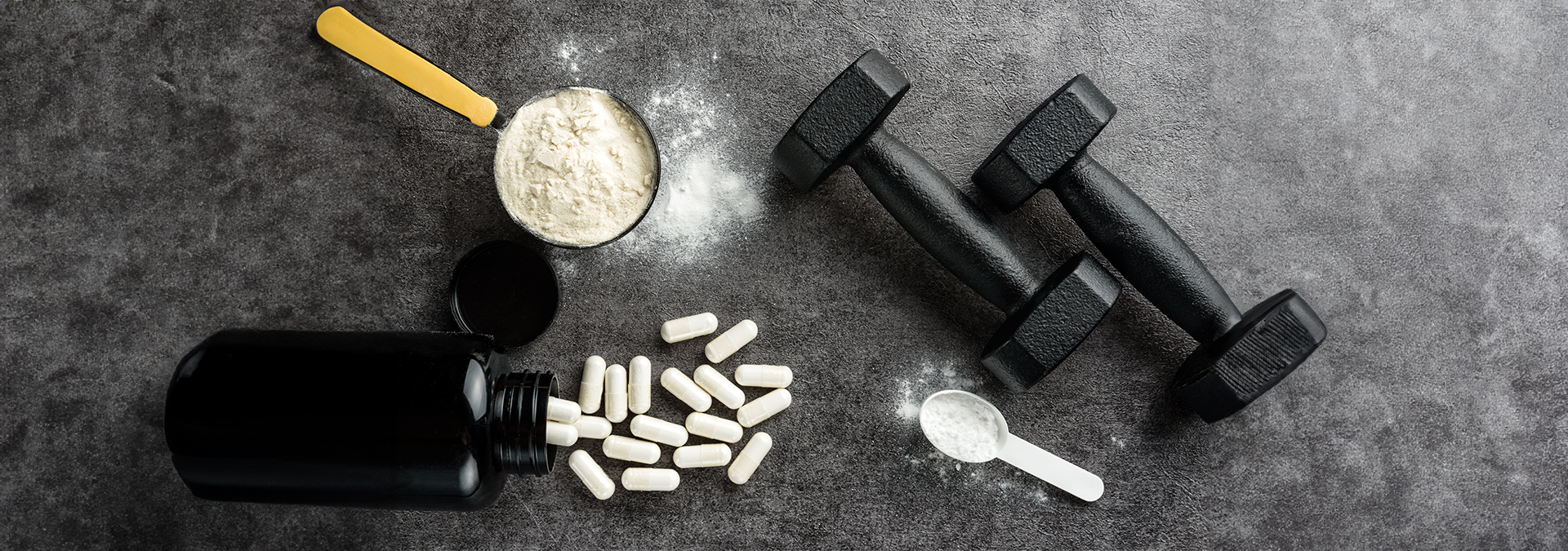
Fitness and Exercise
Does Creatine Make You Gain Weight? Discover the Truth Today!
10 Min. Read 21 Nov 2024
On this page
If you've been dipping your toes into the world of fitness and muscle building, you've probably come across creatine. It's a popular supplement, widely known for its ability to enhance muscle performance and growth. However, there's a lingering question that often stirs debate: does creatine make you gain weight?
Let's dive into this topic and uncover the truth about creatine and its impact on your weight.
What Is Creatine?
Creatine naturally exists in small quantities within specific foods such as red meat and fish. It is also synthesised in the liver, kidneys, and pancreas from amino acids. Creatine is stored in muscles and used as a quick energy source during high-intensity activities, such as weight lifting or sprinting.
Due to its role in energy production, many athletes and bodybuilders use creatine supplements to improve performance and support muscle growth. So, is creatine good for you? Let’s find out more in the following sections.
Does Creatine Make You Gain Weight?
The simple answer is yes, but it's essential to understand the type of weight gain associated with creatine. Creatine weight gain typically falls into two categories: water weight and muscle mass.
Water Weight: When you start taking creatine, you might notice a quick increase in your weight within the first few days. This is because creatine pulls water into your muscle cells, making them more hydrated. This can lead to a slight puffiness or bloating, which we'll discuss further.
Muscle Mass: Over time, creatine can contribute to an increase in muscle mass. This is because it allows you to train harder and recover faster, leading to greater gains in strength and muscle size.
Does Creatine Make You Bloated?
One of the common concerns with creatine supplementation is bloating. While it's true that creatine causes your muscles to hold onto more water, the extent of bloating can vary from person to person. Some might experience noticeable water retention, particularly in the early stages of supplementation, while others may not see much of a difference.
Tips to Manage Bloating
- Stay Hydrated: Drinking plenty of water can help manage any excess water retention.
- Monitor Sodium Intake: High sodium levels can exacerbate water retention and bloating, so keep an eye on your salt intake.
- Split Doses: Instead of taking a large dose of creatine at once, try splitting it into smaller doses throughout the day.
- Pair With Meals: Take your creatine with meals to aid digestion and reduce gastrointestinal discomfort.
- Monitor Your Intake: Pay attention to how your body reacts and adjust your creatine intake accordingly.
- Gradual Loading Phase: If you're following a creatine loading phase, consider a more gradual approach.
Can Creatine Help You Gain Muscle Weight?
Absolutely, creatine can help you gain muscle weight, and here's how it works through various mechanisms:
1. Increased Energy Production
Creatine enhances your muscles' ability to produce ATP, the energy currency of cells, during high-intensity exercise. With more ATP available, you can push harder in your workouts. This increased energy production allows you to lift heavier weights and perform more reps, which is crucial for muscle growth. So, if you’re wondering, “Does creatine make you gain weight in terms of muscle?” Yes, by helping you participate in more intense training sessions.
2. Enhanced Recovery
One of the underrated benefits of creatine is its ability to improve recovery. Creatine helps diminish muscle cell damage and inflammation after intense exercise. This enhanced recovery means you can train more frequently, leading to greater muscle hypertrophy over time.
3. Greater Strength
Creatine supplementation has been shown to increase strength significantly. This boost in strength is directly linked to muscle gain because stronger muscles can handle more load. As you lift heavier weights, your muscles adapt by growing larger and stronger. So, is creatine good for you if you're aiming for strength and size gains? Absolutely.
4. Muscle Protein Synthesis
Creatine positively affects muscle protein synthesis, the process where your body repairs and builds new muscle tissues after exercise. This increased synthesis leads to greater muscle mass over time. By facilitating better protein synthesis, creatine contributes to creatine weight gain in the form of lean muscle.
5. Enhanced Cellular Hydration
Creatine draws water into muscle cells, leading to enhanced cellular hydration. This not only makes muscles appear fuller but also creates an ideal environment for muscle growth. Proper hydration is crucial for many cellular functions, including muscle repair and growth. So, understanding how to creatine load properly can maximise these benefits.
6. Improved Performance
Finally, creatine improves overall performance. Whether you're sprinting, lifting, or engaging in endurance activities, creatine helps you perform at your peak. This improved performance translates into better training adaptations and more significant muscle gains over time.
So, is creatine good for you? Absolutely. In short, creatine supports muscle weight gain through increased energy production, enhanced recovery, greater strength, better muscle protein synthesis, and improved performance. When used correctly, it can be a game-changer in your fitness regimen.
How About Creatine Loading?
Creatine loading is a strategy used to saturate your muscles with creatine quickly. It typically involves taking a high dose of creatine (around 20 grams per day) for 5-7 days, followed by a maintenance dose of 3-5 grams per day. While creatine loading isn't necessary, it can help you experience the benefits of creatine faster.
How to Creatine Load:
- Loading Phase: Take 20 grams of creatine per day, split into 4 doses of 5 grams each, for 5-7 days.
- Maintenance Phase: After the loading phase, take 3-5 grams of creatine per day to maintain elevated creatine levels in your muscles.
How Much Creatine Per Day to Build Muscle?
To build muscle, the recommended dose of creatine is 3-5 grams per day. This amount is sufficient to maintain elevated creatine levels in your muscles without causing excessive water retention or other side effects. Consistency is key, so make sure to take your daily dose even on rest days.
What About Creatine Supplements?
Now that you know the answer to the question, “Does creatine make you gain weight?”, let’s take a look at creatine supplements. In the UK, creatine supplements come in various forms, the most common being creatine monohydrate. It’s the most researched and proven form, known for its effectiveness and safety.
Other forms include creatine ethyl ester, buffered creatine, and creatine hydrochloride, but they do not have significant advantages over creatine monohydrate.
When purchasing a creatine supplement in the UK, always ensure you're getting a product that's both effective and safe. Here are a few essential points to remember:
- Check for Purity: Look for products that state they contain 100% creatine monohydrate without any fillers or additives. Pure creatine ensures you're not ingesting unnecessary ingredients.
- Look for Reputable Brands: Opt for well-known and trusted brands. These companies are more likely to adhere to strict manufacturing standards and provide high-quality products.
- Consider the Form: Creatine supplements come in various forms, including powders, capsules, and tablets. Choose the form that best suits your preference and lifestyle. Powders are often more cost-effective and can be easily mixed with water or a beverage.
- Review Dosage Instructions: Make sure the product provides clear dosage instructions. Proper dosing is crucial for effectiveness and safety.
- Price vs. Quality: While it might be tempting to go for the cheapest option, quality should not be compromised. Higher-priced products from reputable brands are often worth the investment.
- Read Reviews: Check online reviews from other users in the UK. They can provide insights into the product's effectiveness and any potential side effects.
By keeping these pointers in mind, you can make a well-informed decision and choose a creatine supplement that supports your fitness goals effectively.
WeightWorld Creatine Monohydrate Tablets - 270 Tablets 3000mg
Why Choose Them?
These vegan & gluten-free tablets are perfect for strength, muscles & recovery.
Our satisfied customers love these capsules and have given them an outstanding 5 out of 5.
According to Topster -
“Easy to swallow and gains show very quickly. This is a great product”
Looking for other forms? We also offer unflavoured Creatine Monohydrate Micronised Powder and delicious lemon-flavoured Creatine Gummies. Check them out!
How Much Creatine Should I Take?
The amount of creatine you should take depends on your goals and individual response. Here's a general guideline:
- Maintenance Dose: 3-5 grams per day.
- Loading Phase (Optional): 20 grams per day (split into 4 doses) for 5-7 days, followed by 3-5 grams per day.
Always seek advice from a healthcare professional before beginning any new supplement regimen, particularly if you have underlying health conditions or are on other medications.
Final Say
So, does creatine make you gain weight? Yes, but it's important to distinguish between water weight and muscle mass. Creatine can help you gain muscle weight by enhancing your performance and recovery, while the initial water retention is typically temporary and manageable.
Now that you understand how creatine works and how to use it effectively, you can make informed decisions about incorporating this powerful supplement into your fitness routine. Make the most of creatine supplementation and work towards achieving your fitness goals by following the insights and recommendations outlined above!
FAQs
Creatine can lead to a slight increase in weight due to water retention and muscle gain, not fat. This effect varies among individuals, but it's generally seen as a positive outcome for those looking to enhance muscle mass. In other words, does creatine make you gain weight? Yes, but mostly in a beneficial way related to muscle and hydration.
Yes, you can take creatine while trying to lose weight. It helps maintain muscle mass and strength during a calorie deficit. However, be aware of potential water retention which might temporarily affect the scale. Is creatine good for you when losing weight? It can be, as it helps preserve muscle.
The initial creatine weight gain from water retention may subside once supplementation stops. Muscle gains, however, remain as long as you maintain your training routine. Does creatine make you gain weight? Initially yes, but it's primarily water weight that can diminish over time.
Creatine can help make muscles appear bigger by increasing water content in muscle cells and promoting muscle growth. This effect contributes to a fuller, more defined look. Wondering how much creatine per day to build muscle? Typically, 3-5 grams daily.
To avoid unnecessary weight gain on creatine, stay hydrated, monitor your dosage, and maintain a balanced diet. Understanding how to creatine load correctly can also help manage initial water retention.
Creatine can enhance muscle definition by supporting muscle growth and improving performance. While it may cause temporary water retention, the overall muscle gains contribute to a leaner, more toned appearance. Is creatine good for you for achieving a lean look? Yes, when combined with proper training and nutrition.
Sources
Powder | Unflavoured Micronised Powder | For High-Intensity Exercise
200 g Powder | 200 g 40 Servings | For Weight Management & Vitality
Powder | Unflavoured Micronised Powder | For High-Intensity Exercise
200 g Powder | 200 g 40 Servings | For Weight Management & Vitality
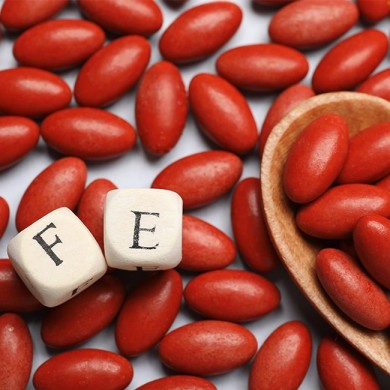
Next
Difference Between Vitamin D And Vitamin D3 What Are Iron Pills? Key Functions of Iron Pills Types of Iron Pills When Is the Best Time to Take Iron Supplements? Should I Take Iron Supplements With Food? How Long Do Iron...
Most Viewed Articles
7 Proven Health Benefits of Apple Cider Vinegar What Is Apple Cider Vinegar? What Are...
On this page What Are the Top Vitamin B12 Foods? What About Vitamin B12 Supplements?...
On this page What Is a Vibration Plate? Why Should I Do Vibration Plate Exercises?...

